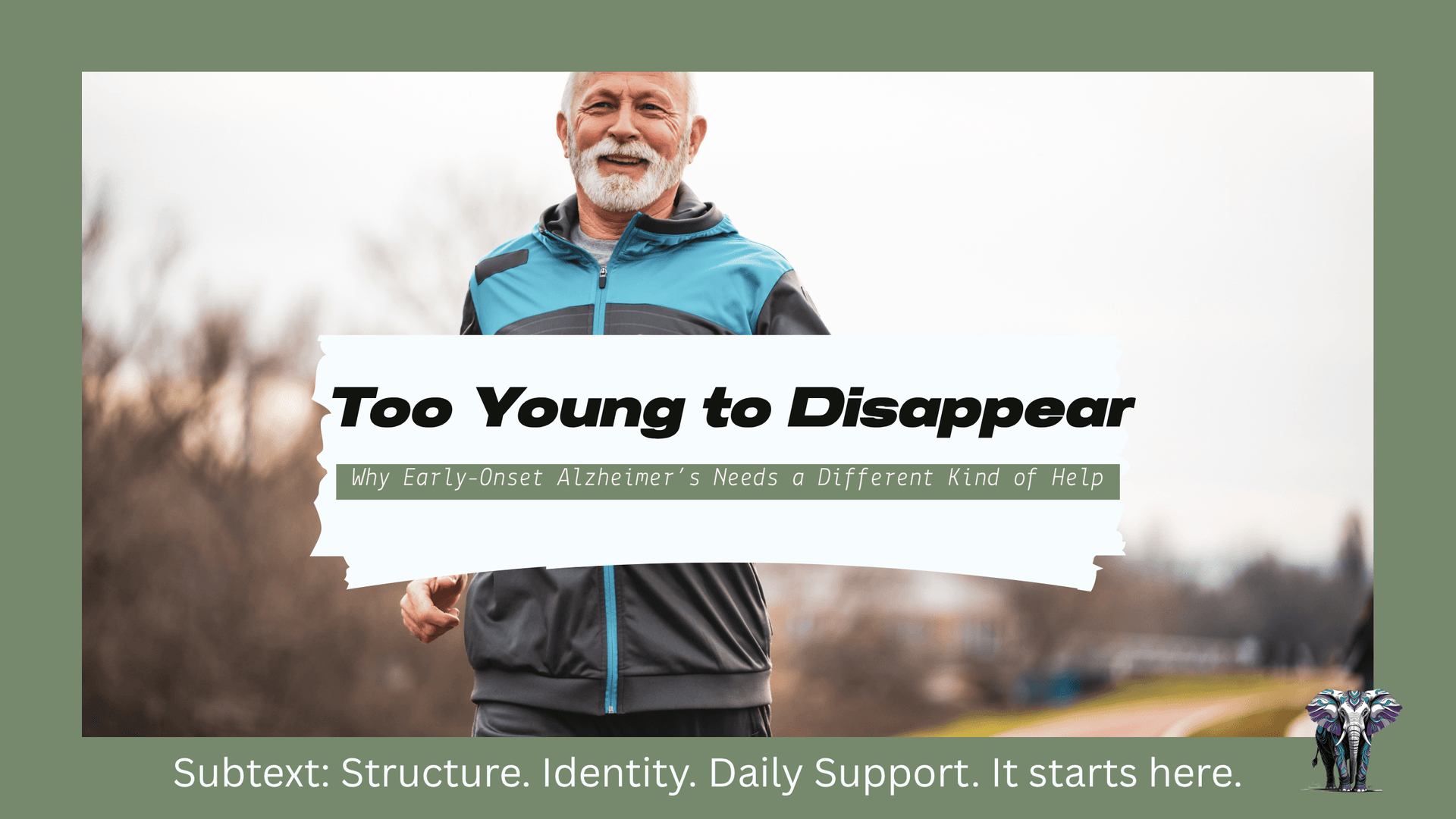🧠 What Happens When You're Too Young to Disappear?
VS
Early-Onset Alzheimer’s and the Silence No One Talks About

By Vanessa Saunders, Founder of MiM (Memory in Motion)
Everyone talks about Alzheimer’s like it starts in a rocking chair.
Like it waits politely until you're 87, gray-haired, and holding a faded photo of someone you used to recognize.
But what if it starts earlier?
Much earlier.
What if it starts with forgetting the word for remote at 52?
Or getting lost on the way home from your regular grocery store?
Or staring at a toothbrush and wondering—just for a second—what you’re supposed to do with it?
That’s early-onset Alzheimer’s.
And there is almost nothing built for it.
Where Are the Systems for People Still in Motion?
Early-onset Alzheimer’s doesn’t look like the movies.
It looks like:
A dad who forgets how to start the car—but remembers every World Cup stat from 1982.
A mom who can teach a yoga class but can't remember how to open the banking app.
A couple who still has a mortgage, still has jobs, still raises kids—and now must navigate a system designed for someone twenty years older and mostly silent.
If you're diagnosed at 50, 55, 60... good luck.
You’re too young for most clinical trials.
Too functional for memory care.
Too sharp for your friends to believe you.
Too early for help.
Too late for denial.
And the Support Groups?
Let’s just say this:
If you're still paying college tuition and someone hands you a support group filled with 80-year-olds reminiscing about Lawrence Welk and their grandkids’ graduations, you're probably going to smile politely, cry in the car, and never go back.
This Is What No One Talks About.
Alzheimer’s doesn’t arrive all at once.
It arrives like fog. Quiet. Creeping. Confusing.
But for early-onset patients and their families, that fog lands while life is still happening.
Jobs.
Bills.
Dinner.
Children.
Spouses.
Dreams.
There is no pause button for this kind of diagnosis.
So why does every form of support act like there is?
That’s Why I Built MiM.
MiM (Memory in Motion) was built because my husband Tim started forgetting things—and I started realizing no one had built the system we needed.
We didn’t need a pamphlet.
We needed a plan.
We didn’t need a support group that met once a month in the back room of a hospital.
We needed daily reminders, structure, empathy, and tools that helped us keep our life intact while the ground shifted beneath it.
MiM isn’t a medical app.
It’s a life support system for early-stage Alzheimer’s.
It’s for the Travelers who are still capable of so much—and the Supporters who are trying to keep it all together without burning out or breaking down.
If You're Reading This...
You may be in that quiet in-between space.
The stage where you’re not quite sure if this is real.
Where it still feels like maybe it’s stress. Or aging. Or burnout. Or lack of sleep.
But you know.
You’ve seen the shift.
And maybe you’re terrified to say the word out loud.
That’s okay.
MiM was built for exactly this moment.
Before things get worse.
Before routines fall apart.
Before the system fails you.
Because it will.
Unless we build something better. Together.
Learn More
🔗 https://livewithmim.org
We’re not here to replace doctors, trials, or medication.
We’re here to do what they won’t: walk with you every day after the diagnosis.
💡 MiM: Built to Remember. Designed to Care.
🐘 Share this. Someone needs it right now—even if they’re not ready to say it out loud yet.
